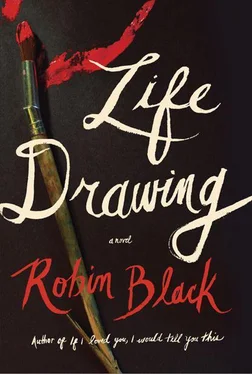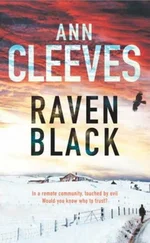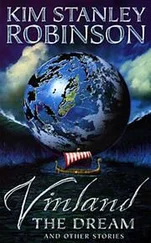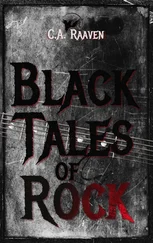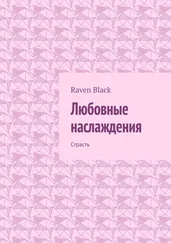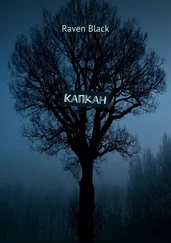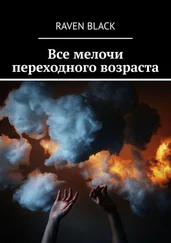Occasionally, though, there was a reason to keep track. The morning after we had dinner with Alison, I realized it had been two weeks since I’d visited my father — though it was a funny thing to measure. He was far enough down the road into his own private reality that time had taken on yet another quality for him. When I appeared, if he knew who I was, he might think I had been there the day before. Or not for a decade. On the previous visit, he’d greeted me with the news that I had just missed my sister Charlotte, dead for six years. It was a shame, he said, as she’d brought cookies with her and I could have had some.
There were many ways in which I loved my father more in his demented state. We’d sat there, on that earlier day, and talked a long while about Charlotte’s visit. It had been strange and lovely to think she had just left the room a few minutes earlier. That her not being there with me was a matter of a missed connection, a failure to coordinate our plans better. In the moment, it had soothed me. My father had soothed me, as he rarely had when he was still my real dad, tight-lipped and stoic, and not this otherworldly mystic receiving social calls and cookies from our dead.
Owen offered to go with me but I knew he wanted to be home and I didn’t want to be the cause of his missing a chance for the breakthrough that was bound eventually to appear, so I set off on my own.
It was my other sister, my younger sister, Jan, a doctor, the practical one, who had found the place where my father was to dwindle, then disappear. (I sometimes pictured a star doing the same thing over millions of years, slowly, slowly losing its bearings in the universe, finally flickering out.) The home is just west of Philadelphia, not far from where we grew up, about an hour from me, a little closer to where Jan and her partner Letty live. And it was an awful place but also as good as such a place can be. Jan and Letty are generous people. It hadn’t always seemed that way, because Jan has a certain harshness to her, or anyway she does with me; but they were certainly generous financially when it came to this. Jan chose the place knowing that our father’s schoolteacher pension would never be enough to cover it and that my sporadic teaching income wasn’t worth thinking about, but that they, a doctor and an investment banker, wouldn’t even notice that the money was gone. When Owen and I suddenly became flush, I offered to chip in more, but flush to us was still marginal to them and they were quick to say no.
The drive there always made me feel grateful for where we lived, but also primed me for all the sadness to come. I passed seven strip malls — a number I knew because Owen had counted them. There wasn’t a single one that didn’t have at least one store that was also in another, and a couple of them, the closest to us and the closest to my father, were pretty much identical. This unmistakable decline into homogeneity invariably depressed me. At some point in every drive to my father, I would catch myself thinking: what exactly is the fucking point? And maybe I didn’t really plummet because by then I had passed two Bed, Bath & Beyonds, two Lowe’s, two Home Depots, two Michael’s, and three Taco Bells. I know there was more to my despair than that. But I always told myself that the dismal scenery was the cause — every time.
My father was in what Owen called his high-quality science fiction mode that day, meaning that nothing he said had any bearing on reality but it all made a certain sense. Whatever universe he was in had solid, logical underpinnings. He had been on a sailboat and was angry because the man in charge—“The captain?” I asked as if clarity on this one point might be meaningful — had told him he could drink the ocean water, but it wasn’t true. The man hadn’t been lying, but he was wrong. He was mistaken.
Every once in a while, the schoolteacher in my father would come shining through. Like when he used the word mistaken . As in: I’m afraid you’re mistaken, young man. The American Civil War was not started by Napoleon . The schoolteacher, and the father too. As in: You may think I am going to support you, Augusta, if you leave college to draw pictures all day, but you are sadly mistaken .
I wasn’t paying the sort of attention I’d paid on the visit before when he’d told me about my long-gone sister’s baked goods. Mostly, as I sat in the small chair across from an identical chair that he barely filled with his dwindling, flickering starlight self, I watched his facial expressions, trying to translate them into something having to do with him. When he got stern like that, was he, somewhere in the folds of his consciousness, actually back in front of a class, giving in to the temptation to make a stupid child look even stupider? Or was he, as his better self, giving holy hell to the bully picking on the skinny kid who at thirteen still had trouble tying his shoes? Could there be this other narrative, the one he’d actually lived, playing out in the core of him? Could the smile he suddenly flashed have sprung from the Father’s Day when all of us, Charlotte, and Jan and I — under Charlotte’s direction, of course, she being the ringleader of all such activities — put on a little sketch, about who knows what? I couldn’t remember. But maybe he could. Somewhere.
“A man in charge of a boat,” he said, “should know about water.”
An old painting of mine hung behind him and I glanced at it while he spoke. A streetscape I’d done in New York, when I was twenty years old. Fourteenth Street. About six months before this visit, I’d found it stuck behind his bed. One of his nurses, not knowing it was mine, told me he’d said it was boring. “Of all things,” she said. “Boring!” But he hadn’t been wrong. It dated from before I had learned to use my natural precision to my advantage and it had that kind of technical strain for correctness that makes just about everything dull. I had been going to take it from behind the bed, bring it home, throw it out, hide it away, but Owen said I shouldn’t. Because what if my father ever wanted it back? What if he woke up one day and said, Where’s that old painting of mine? The one my daughter Augusta did? Which he may well have done, because during the spring the painting reappeared. Though it was also entirely possible that a different nurse had just found it and thought it belonged on the wall.
I stayed about two hours. I didn’t kiss him goodbye, as I hadn’t kissed him hello. We weren’t a kissing family. Not the three thorny ones of us who were still alive, anyway. My sister Charlotte had spilled over with affection, and I always imagined my mother being the same, but not me and not Jan and surely not our father.
The sun was low as I pulled into our drive. There’s a line of tall spruce on the western edge of our front lawn. They mark the place Owen stops mowing, leaving all meadow beyond. When the sun is at a certain point in the sky, summer afternoons, the shadows from those trees lie across the grass like felled giants. “Why not just sleeping?” Owen asked me, when I told him that.
“Because they’re too still for sleep,” I said. “They’re too untroubled.”
All the drive home I had felt age settle over me. No more the daughter. Not even the forty-seven-year-old woman. Certainly not the seductress tossing the bedcovers into chaos with her lover the night before. But an old, tired soul. Aching from the heart outward. I sat in our drive for a few moments after turning off the car. I sighed as I looked at those heavy shadows on our lawn. When I opened the door, creaking my newly ancient body into the day, I found Alison standing in the drive. Her face took in my condition even before we could say hello.
Читать дальше
